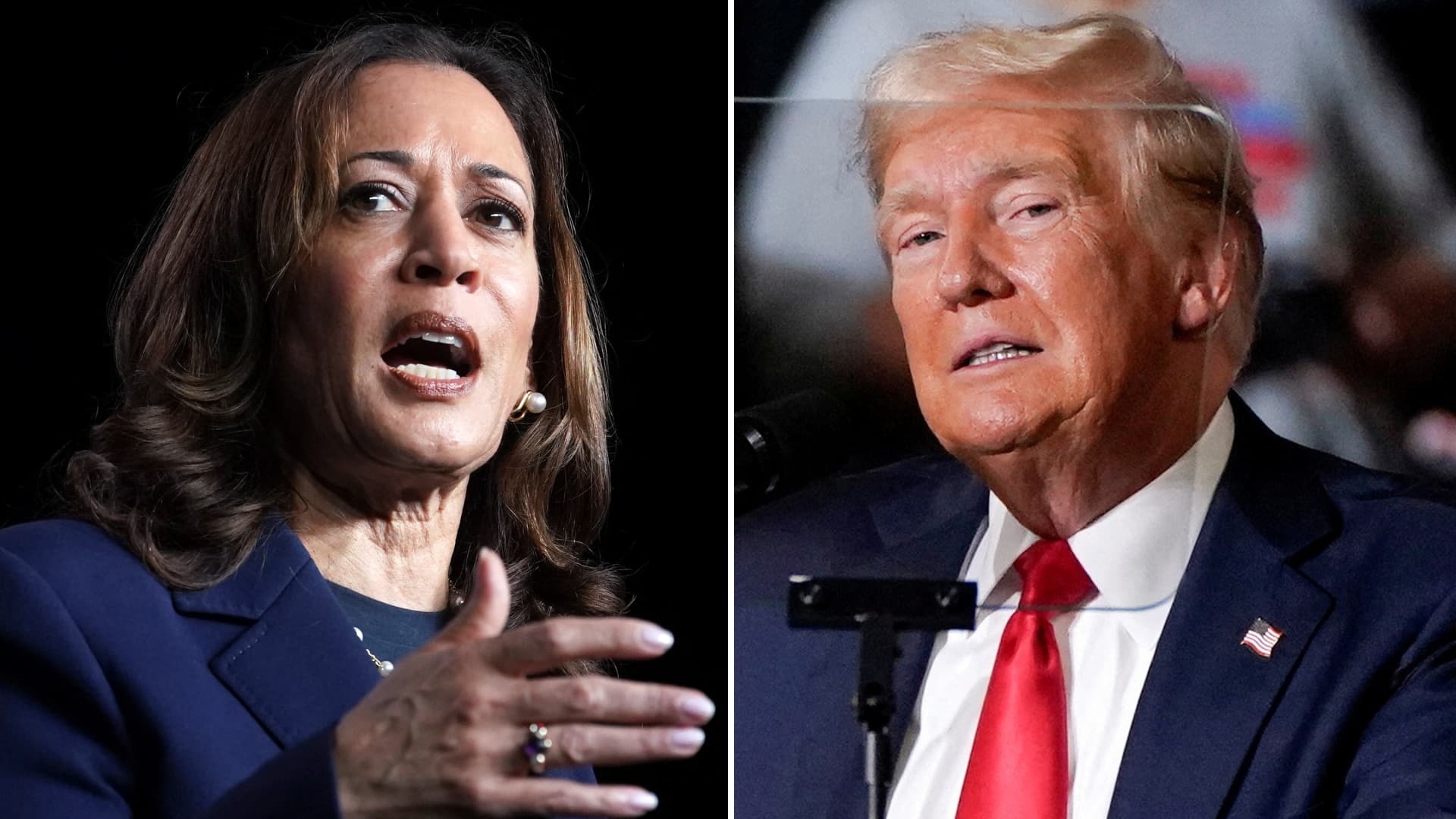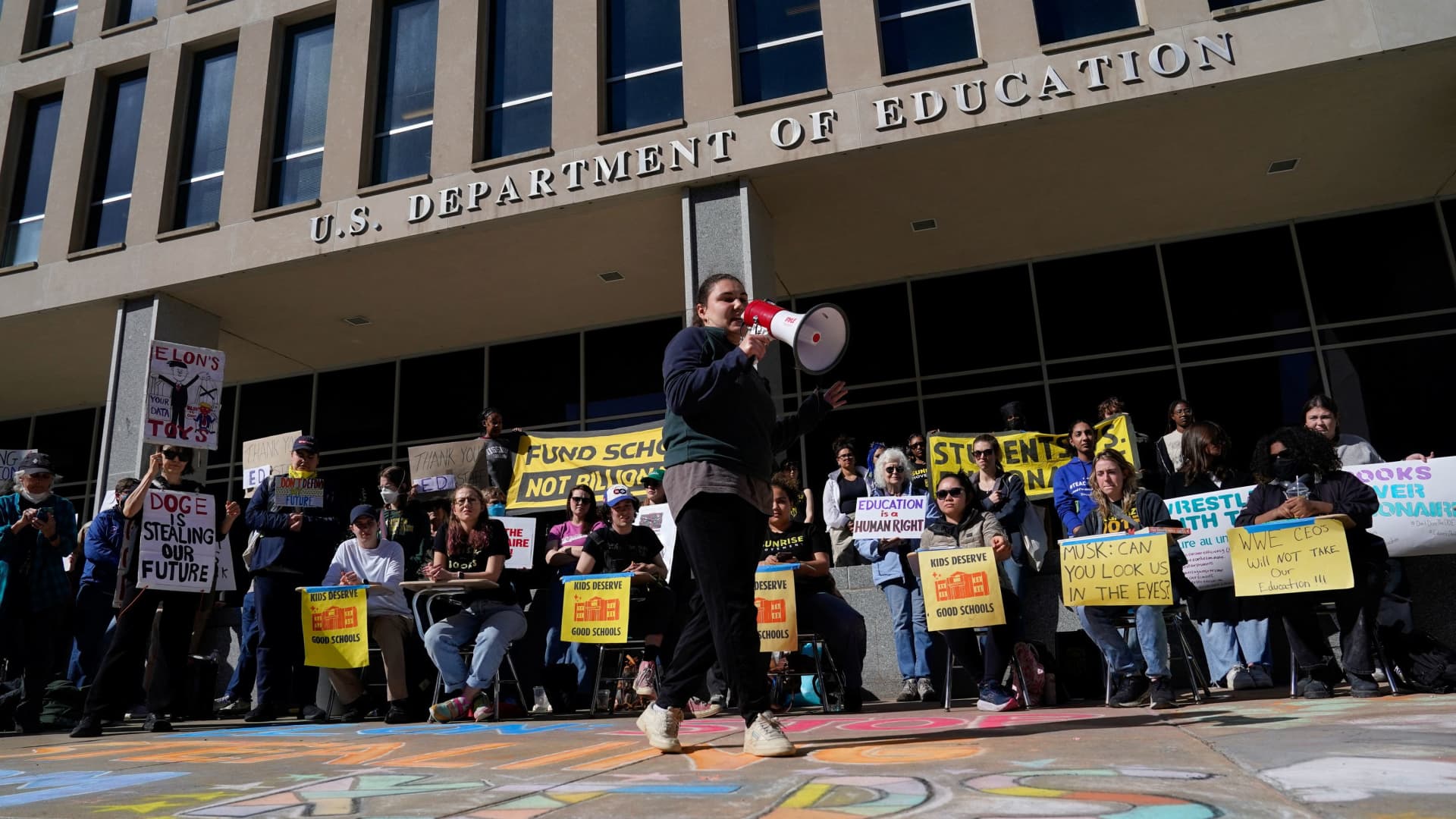Xavier Lorenzo | Moment | Getty Images
Gen Z seems to have a case of economic malaise.
Nearly half (49%) of its adult members — the oldest of whom are in their late 20s — say planning for the future feels “pointless,” according to a recent Credit Karma poll.
A freewheeling attitude toward summer spending has taken root among young adults who feel financial “despair” and “hopelessness,” said Courtney Alev, a consumer financial advocate at Credit Karma.
They think, “What’s the point when it comes to saving for the future?” Alev said.
That “YOLO mindset” among Generation Z — the cohort born from roughly 1997 through 2012 — can be dangerous: If unchecked, it might lead young adults to rack up high-interest debt they can’t easily repay, perhaps leading to delayed milestones like moving out of their parents’ home or saving for retirement, Alev said.
But your late teens and early 20s is arguably the best time for young people to develop healthy financial habits: Starting to invest now, even a little bit, will yield ample benefits via decades of compound interest, experts said.
“There are a lot of financial implications in the long term if these young people aren’t planning for their financial future and [are] spending willy-nilly however they want,” Alev said.
Why Gen Z feels disillusioned
That said, that many feel disillusioned is understandable in the current environment, experts said.
The labor market has been tough lately for new entrants and those looking to switch jobs, experts said.
The U.S. unemployment rate is relatively low, at 4.2%. However, it’s much higher for Americans 22 to 27 years old: 5.8% for recent college grads and 6.9% for those without a bachelor’s degree, according to Federal Reserve Bank of New York data as of March 2025.
Here’s a look at other stories affecting the financial advisor business.
Young adults are also saddled with debt concerns, experts said.
“They feel they don’t have any money and many of them are in debt,” said Winnie Sun, co-founder and managing director of Sun Group Wealth Partners, based in Irvine, California. “And they’re wondering if the degree they have (or are working toward) will be of value if A.I. takes all their jobs anyway. So is it just pointless?”
About 50% of bachelor’s degree recipients in the 2022-23 class graduated with student debt, with an average debt of $29,300, according to College Board.
The federal government restarted collections on student debt in default in May, after a five-year pause.
The Biden administration’s efforts to forgive large swaths of student debt, including plans to help reduce monthly payments for struggling borrowers, were largely stymied in court.
“Some hoped some or more of it would be forgiven, and that didn’t turn out to be the case,” said Sun, a member of CNBC’s Financial Advisor Council.
Meanwhile, in a 2024 report, the New York Fed found credit card delinquency rates were rising faster for Gen Z than for other generations. About 15% had maxed out their cards, more than other cohorts, it said.
It’s also “never been easier to buy things,” with the rise of buy now, pay later lending, for example, Alev said.
BNPL has pushed the majority of Gen Z users — 77% — to say the service has encouraged them to spend more than they can afford, according to the Credit Karma survey. The firm polled 1,015 adults ages 18 and older, 182 of whom are from Gen Z.
These financial challenges compound an environment of general political and financial uncertainty, amid on-again-off-again tariff policy and its potential impact on inflation and the U.S. economy, for example, experts said.
“You start stacking all these things on top of each other and it can create a lack of optimism for young people looking to get started in their financial lives,” Alev said.
How to manage that financial malaise
Patricio Nahuelhual | Moment | Getty Images
Young adults should try to rewire their financial mindset, experts said.
“Most importantly, you don’t want to bet against yourself,” Sun said.
“See it as an opportunity,” she added. “If you’re young and your expenses are low, this is the time to invest as much as you can right now.”
Time is working in their favor, due to the ability to compound investment growth over multiple decades, Alev said.
While investing might “feel impossible,” every little bit helps, even if it’s just investing $10 a month right now into a tax-advantaged retirement account like a Roth IRA or 401(k).
The latter is among the easiest ways to start, due to automatic payroll deduction and the possibility of earning a “match” from your employer, which is “probably the closest thing to free money any of us will get in our lifetime,” Alev said.
“This is actually the most exciting time to invest, because you’re young,” Sun said.
Instituting mindful spending habits, such as putting a waiting period of at least 24 hours in place before buying a non-essential item, can help prevent unnecessary spending, she added.
Sun advocates for paying down high-interest debt before focusing on investing, so interest payments don’t quickly spiral out of control. Or, as an alternative, they can try to fund a 401(k) to get their full company match while also working to pay off high-interest debt, she said.
“Instead of getting into the ‘woe is me’ mode, change that into taking action,” Sun said. “Make a plan, take baby steps and get excited about opportunities to invest.”


 Blog Post7 days ago
Blog Post7 days ago
 Economics1 week ago
Economics1 week ago
 Finance1 week ago
Finance1 week ago
 Economics1 week ago
Economics1 week ago
 Economics1 week ago
Economics1 week ago
 Personal Finance1 week ago
Personal Finance1 week ago
 Economics1 week ago
Economics1 week ago
 Accounting1 week ago
Accounting1 week ago











